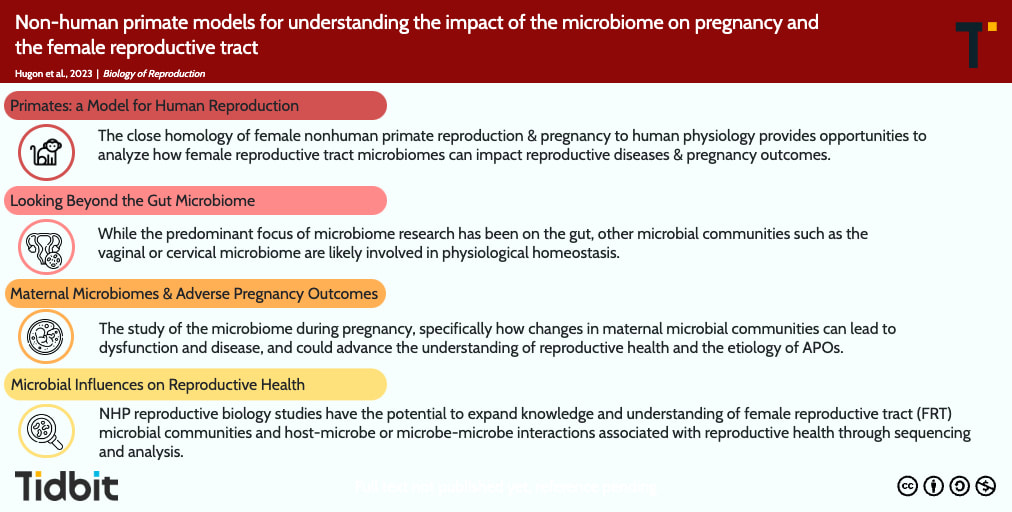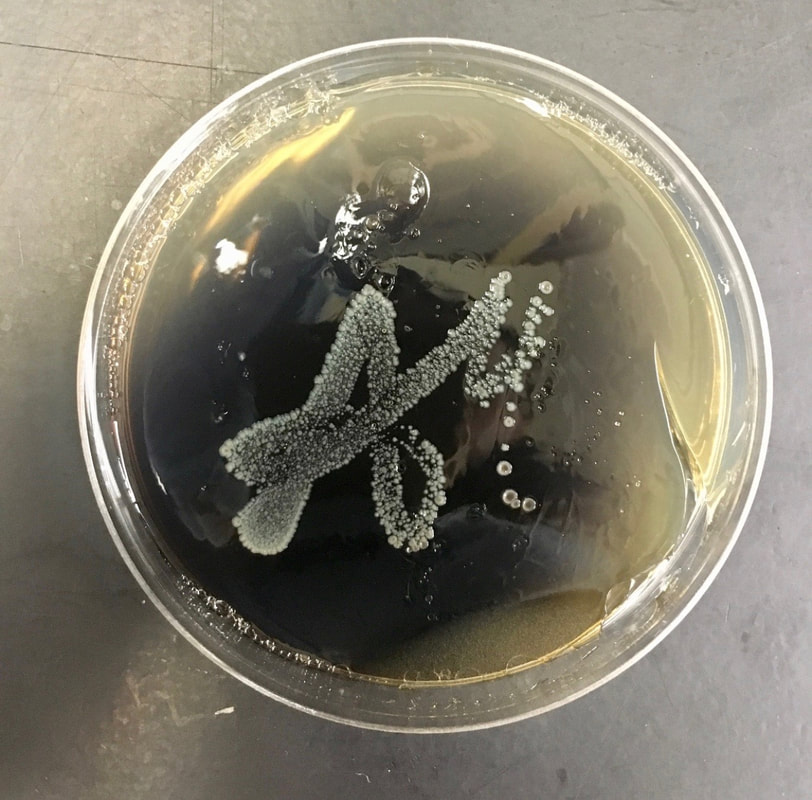Non-human primate models for understanding the impact of the microbiome on pregnancy and the female reproductive tract Abstract The microbiome has been shown, or implicated to be involved, in multiple facets of human health and disease, including not only gastrointestinal health but also metabolism, immunity, and neurology. Although the predominant focus of microbiome research has been on the gut, other microbial communities such as the vaginal or cervical microbiome are likely involved in physiological homeostasis. Emerging studies also aim to understand the role of different microbial niches, such as the endometrial or placental microbial communities, on the physiology and pathophysiology of reproduction, including their impact on reproductive success and the etiology of adverse pregnancy outcomes (APOs). The study of the microbiome during pregnancy, specifically how changes in maternal microbial communities can lead to dysfunction and disease, can advance the understanding of reproductive health and the etiology of APOs. In this review, we will discuss the current state of non-human primate (NHP) reproductive microbiome research, highlight the progress with NHP models of reproduction, and the diagnostic potential of microbial alterations in a clinical setting to promote pregnancy health. NHP reproductive biology studies have the potential to expand the knowledge and understanding of female reproductive tract microbial communities and host–microbe or microbe–microbe interactions associated with reproductive health through sequencing and analysis. Furthermore, in this review, we aim to demonstrate that macaques are uniquely suited as high-fidelity models of human female reproductive pathology. Biology of Reproduction, ioad042, https://doi.org/10.1093/biolre/ioad042 Published: 11 April 2023
0 Comments
Leave a Reply. |
Purpose:Occasional updates on my current presentations and projects. Archives
September 2023
Categories |


 RSS Feed
RSS Feed
